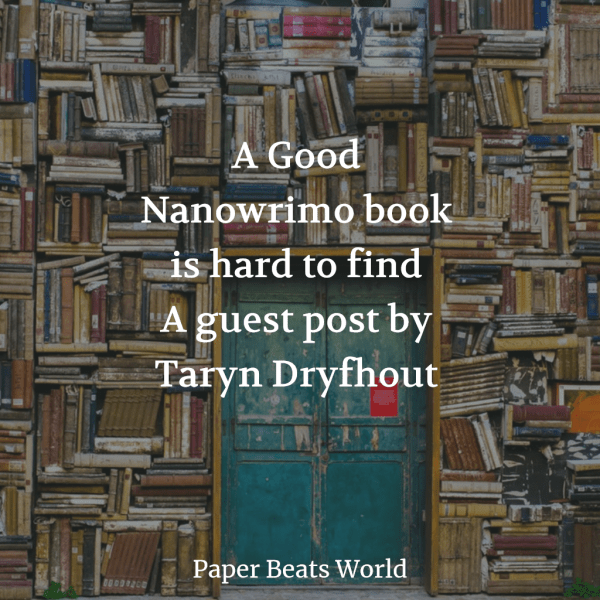I’m a pretty big fan of Garfield. Probably no surprise, there. It’s about a fat orange cat who eats constantly and has no ambition to do anything. And I love anything that’s so different from me. This is the same reason why I love Bender from Futurama or Lucy from Disenchanted. I am not them. They are as far from my personality as it is possible to be.
Of course, they also have moments I do wish I could imitate. I sort of wish I could tell someone where to go like Bender. I would love to be a bad influence like Lucy, just once in a while. And I swear I go on vacation just to act like Garfield. Carb load, sleep all day and watch tv with my blanket and stuffed bear.
Now, I told you all that so we could have a talk about one of the simplest and best pieces of advice about money I have ever learned. Because it didn’t come from Dave Ramsey or Gabbi Dunn. It’s from this one old Garfield comic strip. If you’d like to read it for yourself, it’s the strip from November 23, 1988. (I’m not sure if I can repost it without permission.)
Jon comes in with a hat he’s just bought, and it is an ugly ass hat. And Garfield says, “It’s amazing what some people would rather have than money.”
I have spent a long time thinking about that one sentence. It speaks volumes to the relationship we have with money. (It’s a weird relationship, to be sure. Ask someone about their sex life and their finances, and I bet they talk to you about their sex life.)
To start with, I need to explain that when I was growing up, money meant one thing to me. This was how much we had to spend. My mom would pay the bills, buy groceries, and whatever was left was fun money. There was no talk of savings. My mom did not sit me down and talk about healthy financial decisions. There was sure no talk of maybe setting up an emergency fund and investing. My mother was a waitress, and a good one. So, it felt like we always had money on hand. As a child, I never once worried that we wouldn’t have enough money. I also never went to a store that I didn’t get something new.
I don’t say any of this to bash my mother. More to explain why, when I moved out, I had no idea what I was doing with money. And let’s be fair, most people behave with money exactly how my mom behaved. And I never felt like we were poor. My mom did exhibit some great money habits that I have tried to copy.
Always pay your bills first, and always make sure you have your basic needs met. Our power never got shut off, and we never missed a meal.
But what I didn’t learn, and am still trying to get a grip on, is the value of having money, not just earning money. Saving money, not spending money.
Saving money means that I can afford an emergency. Saving an emergency fund means that any number of bad situations can turn out better. Being able to get an Uber, or order pizza when the stove breaks, or replace something when it breaks. Being prepared for an unexpected bill or a prescription that I didn’t know was going up. Even a doctor’s appointment that I have a co-pay for. If my computer breaks, I can afford to go get a new one from my emergency fund.
That’s what saving money is. Saving money, having it when you need it, that’s security. And I like that every growing feeling of security. I’ve also found out that I just like money. I like earning money, I like having money, I like talking about money.
And there are absolutely things that I would rather not have. I would way rather have the money than clothes, for instance. I’d rather have the money than an expensive car, or really any car at all. I’d rather have the money than jewelry, or expensive perfume, or a bigger tv, or a newer computer. I’d rather have money than most things people spend money on.
Having money also means things I haven’t reached yet, but I’m working towards. Having money means investing in my retirement. It means having a ‘fuck off’ fund. So named because it’s in case you need to tell your boss or your landlord to fuck off. If you don’t know what that is, it’s enough money to pay your expenses if you need to leave your current situation. If you need to quit your job or move. Or if you lose your job. This is money that you can spend and know that you’ll be okay for three to six months, ideally. That’s what it means to have money, not just make money. It’s a goal I’m working towards this year. Slowly, I don’t make all that much money.
So that’s what it means to me to have money. It means security. But then, there are things that I spend money on that have nothing to do with either my bills or my basic needs. There are things that I would much rather have than money.
Tools for my art, like my specific pens that I like. Or a decent camera to take decent pictures. Or yarn to crochet with. Or books to read. Even makeup can fall into this category. I love creating, it makes life worth living for me. Those things have value for me.
My pets are another thing that costs me money. All. The. Time. I buy them brand name food, Christmas gifts, Halloween costumes and treats just because. I am willing to spend more on my rent to have them. I paid money to adopt them and paid money to get Oliver, my dog, fixed. To have my fuzzy companions, I always consider that money well spent.
Peace of mind is also something I am happy to say I would rather have than money. Literally twice I have paid to get a new bank card rather than lose my mind looking for the one I’d lost. Same thing for the charger for my fit bit. I decided that the price of the new item was worth more to me than money. And I’ve rarely felt that was the wrong decision. There are also a whole bunch of nights when I’ll order out or pick up dinner instead of cooking. Not most nights. Most nights it’s actually quite soothing to come home and create a hot, tasty meal. There’s holiness in cooking a meal for yourself and people you love. There’s magic as well. Cooking a meal from scratch is like a spell and a prayer intertwined.
I still just can’t do it some nights. I have a finite amount of energy, just like everyone else. And if I’ve started my morning with at least an hour of writing, gone to work at my full-time day job and hit the gym after work, then I feel like I’ve done enough for the day. Let’s grab something simple and enjoy the evening. Let’s have enough energy to pick up my home and feel the blessing in that. Let’s take some of the pressure off.
Experiences are the final thing I would absolutely rather have than money. Just recently we went to Phipps Conservatory in Pittsburgh and saw some truly gorgeous plants. Then we went to the Strip District and bought tea, cheese and spices. Beautiful things that will give us moments of pleasure. An exotic meal or a good cup of tea in the afternoon. I also love going to the zoo, going camping, traveling as far as we can. We’ve been to DC, the beaches of Delaware. I treasure these experiences.
Even little experiences are worth more to me than money, though. There’s this little candy store that just opened on Main Street, and I can’t wait to check it out. I love the experience of going to the coffee shop and just taking in the atmosphere. That’s something I’d rather have than money.
Another thing I’d rather have than money is a life dedicated to my art. That means saying no to opportunities to make more money because it takes away from my writing time. Saying no to that sort of thing also means I’m in a better place, mentally and emotionally. I like my job but I’m an introvert. Spending time with other people, even the exceptional team I work with tires me. Work is like a marathon. I can run a while, but eventually, I’m going to have to stop and rest.
And my health, more than anything, is something I’d rather have than money.
Now it’s your turn. What would you rather have than money? What would you rather have money than? Let us know in the comments below.
Station 86 is shocked when a Khloe assassin begins killing members of the all powerful  council. Officer Sennett Montgomery and Councilman Godfrey Anders swear to find the assassin after Godfrey’s wife is falsely accused. But the killer, and the council itself, are not what they seem. Neither, as it turns out, is Sennett’s daughter.
council. Officer Sennett Montgomery and Councilman Godfrey Anders swear to find the assassin after Godfrey’s wife is falsely accused. But the killer, and the council itself, are not what they seem. Neither, as it turns out, is Sennett’s daughter.



 council. Officer Sennett Montgomery and Councilman Godfrey Anders swear to find the assassin after Godfrey’s wife is falsely accused. But the killer, and the council itself, are not what they seem. Neither, as it turns out, is Sennett’s daughter.
council. Officer Sennett Montgomery and Councilman Godfrey Anders swear to find the assassin after Godfrey’s wife is falsely accused. But the killer, and the council itself, are not what they seem. Neither, as it turns out, is Sennett’s daughter.

 from Earth, have to hunt down the killer when Godfrey’s wife is falsly accused.
from Earth, have to hunt down the killer when Godfrey’s wife is falsly accused.
 a-bottle into the waves. You wait forlornly for a reply, with steadily diminishing hope. Other times, incredibly, a freak storm causes a bottle to float back! I’ve been lucky to find a publisher for my last two books.
a-bottle into the waves. You wait forlornly for a reply, with steadily diminishing hope. Other times, incredibly, a freak storm causes a bottle to float back! I’ve been lucky to find a publisher for my last two books.  council. Officer Sennett Montgomery and Councilman Godfrey Anders swear to find the assassin after Godfrey’s wife is falsely accused. But the killer, and the council itself, are not what they seem. Neither, as it turns out, is Sennett’s daughter.
council. Officer Sennett Montgomery and Councilman Godfrey Anders swear to find the assassin after Godfrey’s wife is falsely accused. But the killer, and the council itself, are not what they seem. Neither, as it turns out, is Sennett’s daughter.
 I would dearly love to sit down and have coffee with someday. Only she probably wouldn’t drink coffee. She’d probably drink hot chocolate and have a delicious croissant along with it.
I would dearly love to sit down and have coffee with someday. Only she probably wouldn’t drink coffee. She’d probably drink hot chocolate and have a delicious croissant along with it.  Without Laughter. It’s about African American life in Kansas in the 1910s. Much like Goldberg’s novel, it’s not autobiographical on purpose.
Without Laughter. It’s about African American life in Kansas in the 1910s. Much like Goldberg’s novel, it’s not autobiographical on purpose.  I think I’ve gushed about this book before, and I do not care in the slightest. I Know Why The Caged Bird Sings is one of my favorite books of all time. It didn’t feel like reading a book. It felt like sitting in front of Maya, listening to her telling me all about her life. And her life was amazing. From living with her grandmother in the south to becoming a single mom, she experienced so much, so many things that I will never experience. At the same time, it was so hard to read this book and not point out to everyone within earshot, “Listen, listen to this. This is me! It’s just exactly what I’ve thought or felt before. How could this woman, who lived in a completely different time, completely different part of the country, with a completely different family, have so many moments that echo with such truth for me?
I think I’ve gushed about this book before, and I do not care in the slightest. I Know Why The Caged Bird Sings is one of my favorite books of all time. It didn’t feel like reading a book. It felt like sitting in front of Maya, listening to her telling me all about her life. And her life was amazing. From living with her grandmother in the south to becoming a single mom, she experienced so much, so many things that I will never experience. At the same time, it was so hard to read this book and not point out to everyone within earshot, “Listen, listen to this. This is me! It’s just exactly what I’ve thought or felt before. How could this woman, who lived in a completely different time, completely different part of the country, with a completely different family, have so many moments that echo with such truth for me? 

Recent Comments